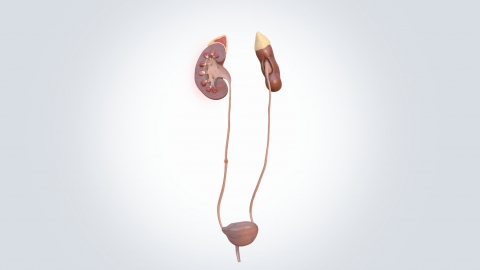Can patients with ureteral stones eat rambutan?
Generally, patients with ureteral stones can eat rambutan, but should consume it in moderation. Detailed explanation is as follows:

Rambutan is rich in vitamin C, B-complex vitamins, dietary fiber, and various minerals such as potassium and magnesium, which help maintain normal physiological functions in the body. Vitamin C has antioxidant properties and can enhance immune function, helping patients better combat disease. Dietary fiber promotes intestinal motility and prevents constipation, offering certain benefits for the patient's recovery. Moreover, rambutan is not a high-oxalate, high-purine, or high-calcium food, and moderate consumption generally does not cause excessive concentrations of related substances in the urine, thereby increasing the risk of stone formation or growth.
Patients with ureteral stones should control the quantity when consuming rambutan, avoiding excessive intake at one time to prevent gastrointestinal discomfort such as indigestion. Before eating, rambutan should be thoroughly washed to remove any surface impurities or bacteria that may cause gastrointestinal infections. Additionally, patients should also focus on overall dietary adjustments and drink plenty of water to increase urine output and promote stone expulsion.




